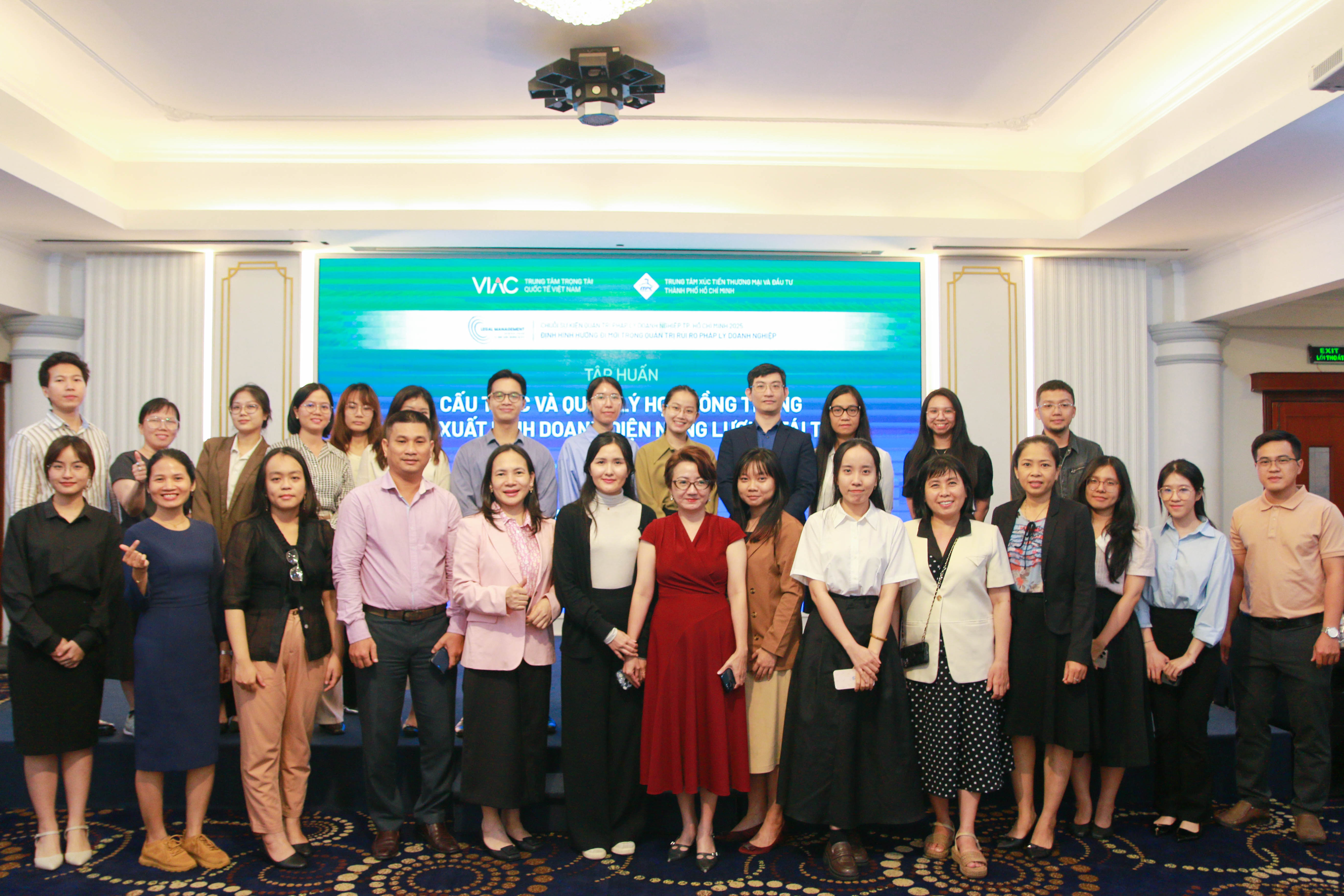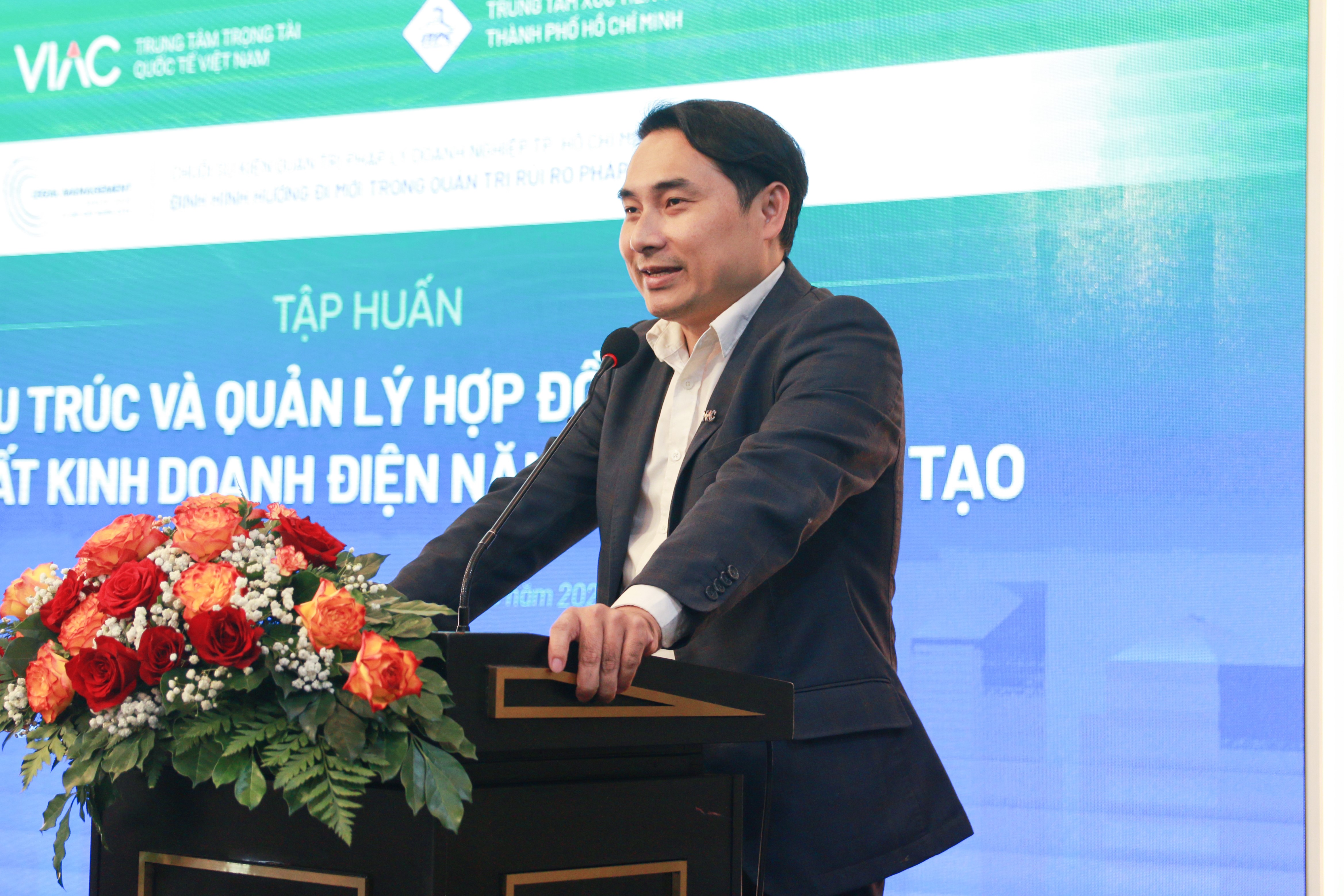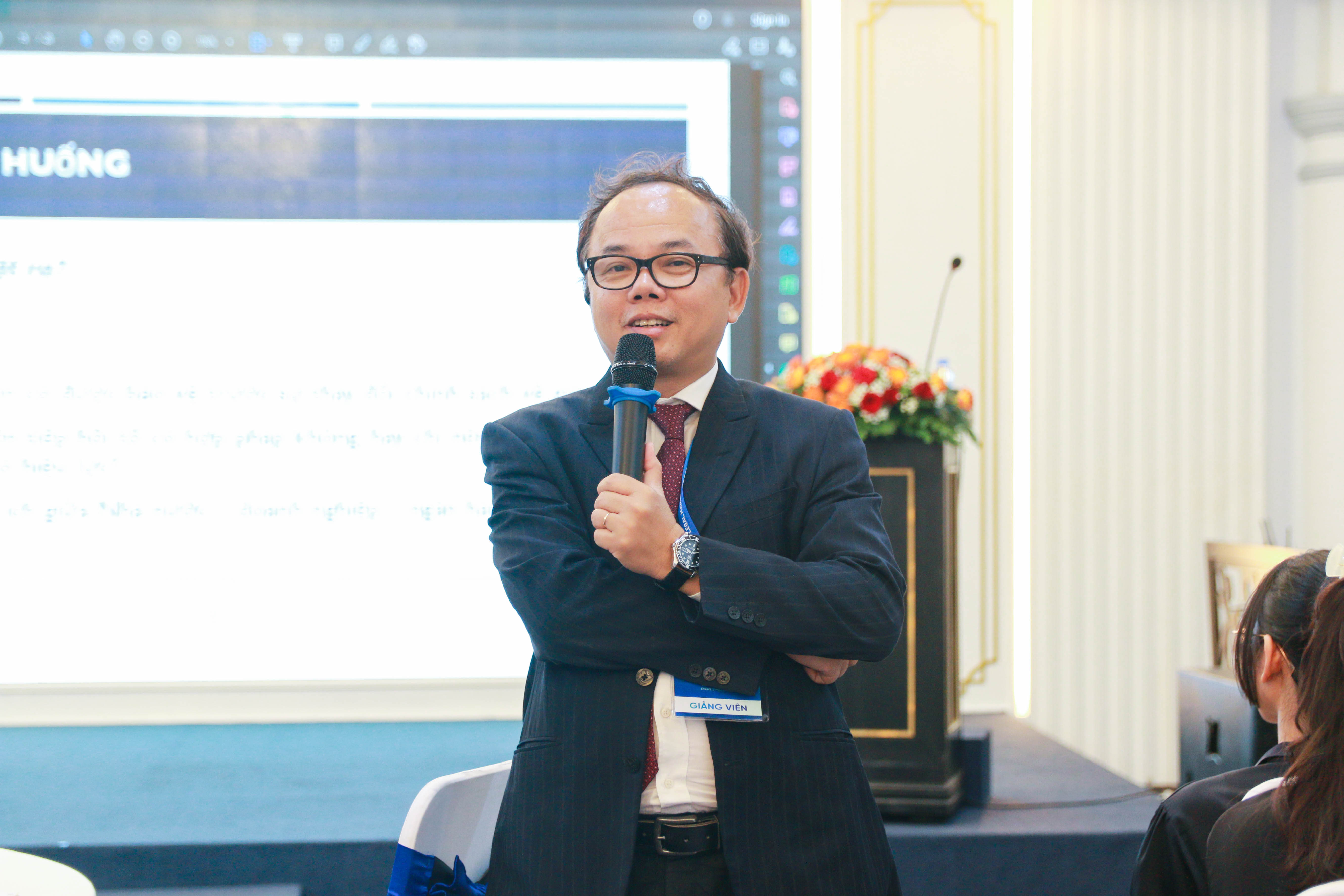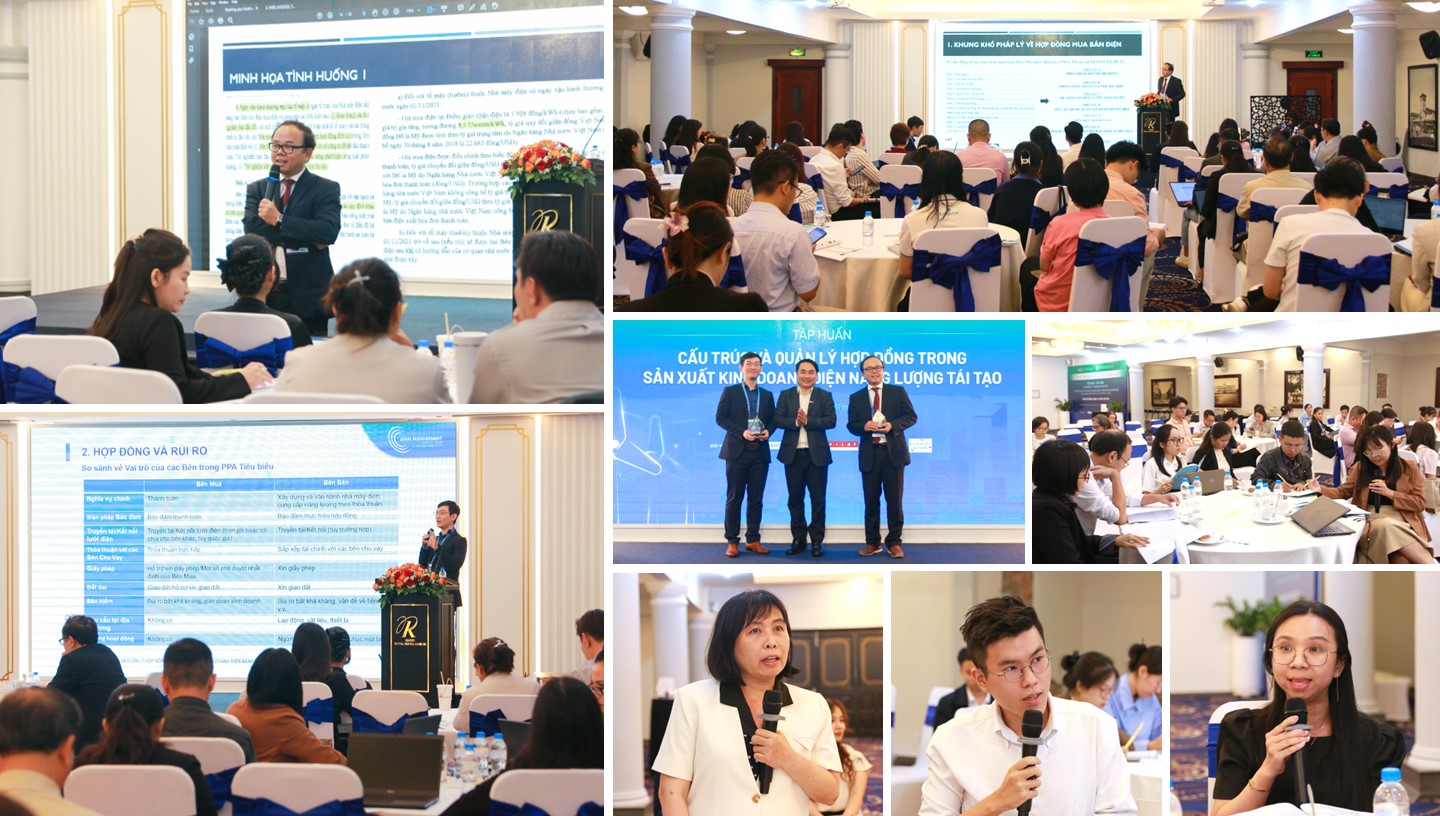
On the afternoon of August 21, 2025, the Vietnam International Arbitration Centre (VIAC), in cooperation with the Ho Chi Minh City Investment and Trade Promotion Centre (ITPC), successfully organized the Training workshop titled “Structuring and managing contracts in renewable energy production and business” within the LMS 2025. The event attracted the participation of more than 100 representatives of enterprises and legal counsels active in the fields of energy, construction, and others.
The workshop was conducted in the form of lectures combined with practical case study, under the guidance of Dr. Lê Nết – Partner at LNT & Partners Law Firm, Arbitrator of VIAC, and Mr. Cao Trần Nghĩa – Partner at Nishimura & Asahi Vietnam Law Firm.

Mr. Châu Việt Bắc – Vice Secretary General of VIAC cum Deputy Director of VIAC HCMC Branch

Dr. Lê Nết – Partner at LNT & Partners Law Firm, Arbitrator of VIAC
Drawing from certain practical cases, Dr. Nết pointed out common dispute scenarios, such as when enterprises contend that the retroactive application of electricity tariffs violates commitments under the PPA, thereby seriously affecting their financial capacity and their debt repayment obligations to banks. In addition, when regulatory authorities detect violations and initiate prosecution or request explanations, enterprises may face multiple risks: termination of contracts, loss of FIT incentives, liability for damages, or entanglement in complex legal disputes

Mr. Cao Trần Nghĩa – Partner at Nishimura & Asahi Vietnam Law Firm
From the perspective of the practical conclusion and performance of Power Purchase Agreements (PPAs), Mr. Cao Trần Nghĩa observed that at present, there continue to exist various definitions and classifications of PPAs worldwide. The reason, he explained, is that energy trading activities in each country are governed by its own legal system, while the concept of the PPA in general remains relatively new. According to international practice, the core terms of a PPA typically revolve around three main groups: (i) capacity and electricity output; (ii) pricing mechanisms, including minimum revenue and fixed costs; and (iii) risk allocation between the parties.
Adding to Dr. Lê Nết’s analysis of the causes of disputes, Mr. Nghĩa underscored that risks under a PPA may arise at multiple stages. For example, risks during the construction phase (delays in progress, cost overruns); operational risks (ranging from inputs such as raw materials, labor, infrastructure, and the power grid to outputs where long contract terms render electricity prices uncompetitive); political risks (changes in law, war, unrest); environmental and social risks; as well as force majeure events. To address these issues, Mr. Nghĩa recommended that enterprises should conduct rigorous due diligence on the project and technical factors, draft comprehensive and well-structured contracts, and at the same time employ insurance instruments to share part of the risks. When disputes arise, given the large costs involved and the participation of multiple parties, including foreign elements, enterprises should first prioritize mediation in order to seek a friendly solution tailored to the needs of each party. If mediation fails, commercial arbitration may be an appropriate choice to resolve disputes effectively, with the advantages of speed, confidentiality, ...

Some photos from the Workshop
--------------------------------
INFORMATION ON EVENTS IN THE ENERGY SECTOR | LMS 2025
.jpg) | Conference "Cooperation in investing & operating energy projects: Developments, current trends & solutions for enterprises" |
.png) | Online Talkshow "ESCO Model: A business solution in energy sector and key considerations on risk allocation mechanisms" |